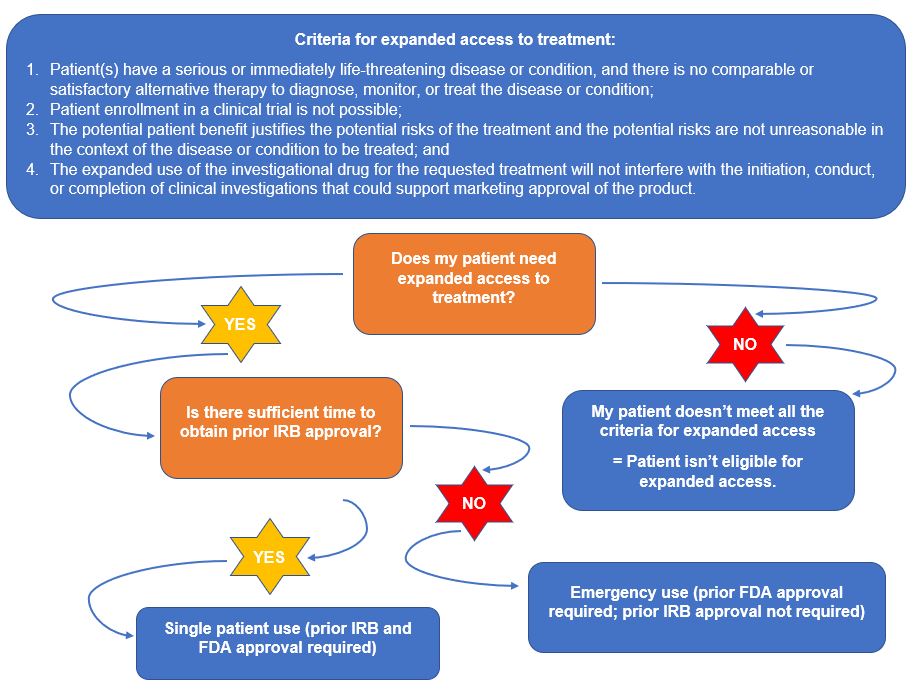Compassionate, expanded access and emergency use of drugs/devices

Compassionate use
Expanded access, also known as compassionate use or a single patient IND, refers to the use of an investigational (not FDA approved) drug/device to diagnose, monitor or treat a patient or patients rather than obtain information that is normally collected in clinical trials.
Those eligible for expanded access are patients with an immediately life-threatening disease/condition where the likelihood of death is within months or where premature death is likely without treatment or the condition/disease is substantially impacting daily functioning. Expanded access is used when there isn’t a comparable or satisfactory alternative and a clinical trial isn’t available.
There are three sizes of compassionate use trials:
- single patient
- intermediate-size
- expanded access (treatment IND/ widespread use)
This type of use is subject to FDA and IRB approval prior to initiating treatment. The GU IRB requires IRB and FDA approval prior to initiating treatment.
Emergency use
This is used when there isn’t sufficient time to obtain FDA and IRB approval prior to starting treatment with an unapproved (investigational) drug/device.
This is used when someone is in a life-threatening or seriously debilitating situation where there is no other treatment available and there is no time to obtain FDA and IRB approval.
GU requires the IRB to be notified via phone, email or fax prior to emergency use but the treating physician doesn’t need to wait for IRB approval. The treating physician must submit this to the GU IRB within 5 business days.